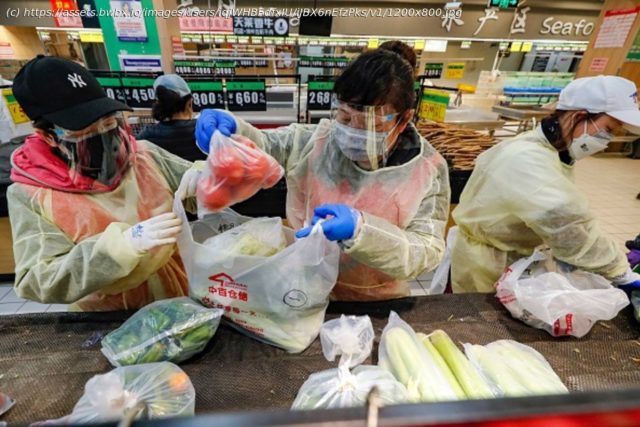The risk to food supply chains is reviving a push for self-sufficiency. That comes with an environmental cost.
Empty supermarket shelves in the early stages of the coronavirus pandemic have put grow-your-own back on the world’s agenda, and nowhere more so than in China, where ensuring food supplies for its huge population has been a political priority for decades. Simply diversifying imports may not satisfy hawkish voices. Emphasizing domestic production, though, will extract a heavy toll for a country with a fifth of the globe’s people, but roughly a 10th of arable land and less than 6% of water resources.
For a nation scarred by famine, it’s hard to overstate the importance of food security. That was true long before 1994, when U. S. environmental pioneer Lester Brown drew international attention to the potential consequences of scarcities by asking who would feed China when it boomed. Officials fear inflation as a potential cause of social and political instability — not without reason, given that rising prices helped provoke the Tiananmen Square protests. Agricultural imports, of course, have a tendency to become tangled in diplomatic spats.
The answer was historically a simple one: self-sufficiency, particularly in grains like wheat, rice and corn. The idea has been hard to shake, even if the exact meaning of the phrase has softened over the years. Then came the 2020 pandemic, pressing everyone to fret about messy distribution chains. Officials freshened up plans and, projecting an image of self-reliance, Premier Li Keqiang told China’s parliament last month that it was imperative to ensure food supply, while rewarding grain-producing counties and boosting the minimum purchase price for rice.
That doesn’t mean the country can simply set the clock back to 1996, when China outlined a strict grain self-sufficiency policy — or that it plans to. In part, what China is doing now is a regular rebalancing of the official position, says Thomas David DuBois at Beijing Normal University, who hosts the China Eats podcast.






